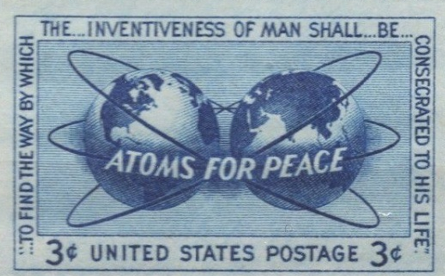Acte de celebració i conferència inaugural del nou Institut d'Història de la Ciència [15/10/2021]
El 15 d'octubre a les 11 del matí, la Sala d'Actes de la Facultat de Ciències i Biociències acollirà la conferència inaugural del nou Institut d'Història de la Ciència de la UAB i del nou curs acadèmic 2021-22, en particular dels programes oficials de Màster (Història de la Ciencia: Ciència, Història i Societat, UAB-UB-UPC) i de Doctorat (Història de la Ciència, UAB-UB), coordinats per l'IHC.
L’acte estarà presidit pel Rector de la UAB, el Dr. Javier Lafuente, i comptarà també amb la presència de la Degana de la Facultat de Ciències, Dra. Gemma García, i tindrà com a peça central la conferència de la Professora Maria Rentetzi (Chair of Science, Technology and Gender Studies a la Friedrich-Alexander-Universität Erlangen-Nürnberg), titulada: “Science in the Hands of Diplomats: How the International Atomic Energy Agency (IAEA) Shaped our Knowledge About Radiation Protection”.
La conferència de la Professora Rentezi serà presencial, seguint totes les mesures de prevenció del protocol de seguretat covid-19 de la UAB. L'l'aforament de la sala és limitat i caldrà confirmar l’assistència i també podrà seguir-se en directe. La sessió serà gravada per posar-la a disposició de tota la comunitat universitaria.

La Professora Maria Retetzi és una especialista de renom internacional en l’estudi de les relacions entre ciència i gènere, i ciència i diplomàcia, al segle XX. Actualment és investigadora principal d’un ERC-Consolidator Grant sobre la dimensió diplomàtica de la ciència. Ha estat professora invitada de la TU de Berlin, professora de la National Technical University of Athens (NTUA) i Silverman Professor a la Tel Aviv University a Israel (2018). Es formà com a física a la Aristotelian University of Thessaloniki, i posteriorment com a historiadora de la ciència al Virginia Polytechnic Institute and State University. Ha estat també investigadora postdoctoral al Max-Planck Institute d’Història de la Ciència (MPIWG) de Berlin i Lise-Meitner Fellow a l’Austrian Science Fundation. Ha rebut també el Gutenberg e-prize de la American Historical Society.
What diplomacy has to do with nuclear science and especially with radiation protection? Many in the scientific world might say none. Concerning the nuclear industry, the overall perception is that if workers are trained, operators are certified, and programs accredited then nuclear safety will ensue. Similarly, in the nuclear medical sector, what seems to count is sufficient training of the personnel, adequate organizational and managerial structures, and the adherence with the safety culture. In short, following well established scientific methods and practices keep us safe. Then, how diplomacy could play any role in the production of knowledge about radiation and safety? History, however, suggests that scientific knowledge about radiation protection has been strongly shaped not only by social, economic, and political concerns but by diplomacy as well. Focusing especially on the history of the International Atomic Energy Agency—the only United Nations body with specific statutory responsibilities for radiation protection and safety in all sectors—this paper examines how, when, and why the Agency conceived radiation protection as a global problem that required a coordinated global solution, and thus complex diplomatic negotiations on a highest level. Established in 1957, the IAEA has become today the most influential player in the nuclear world. As a unique technoscientific and diplomatic organization, the IAEA came to dominate scientific institutions with a long tradition in radiation protection, and placed nuclear science in the hands of diplomats. The paper turns our attention to global diplomacy as a means to understand historical processes in science and technology, framing this research as Diplomatic Studies of Science.